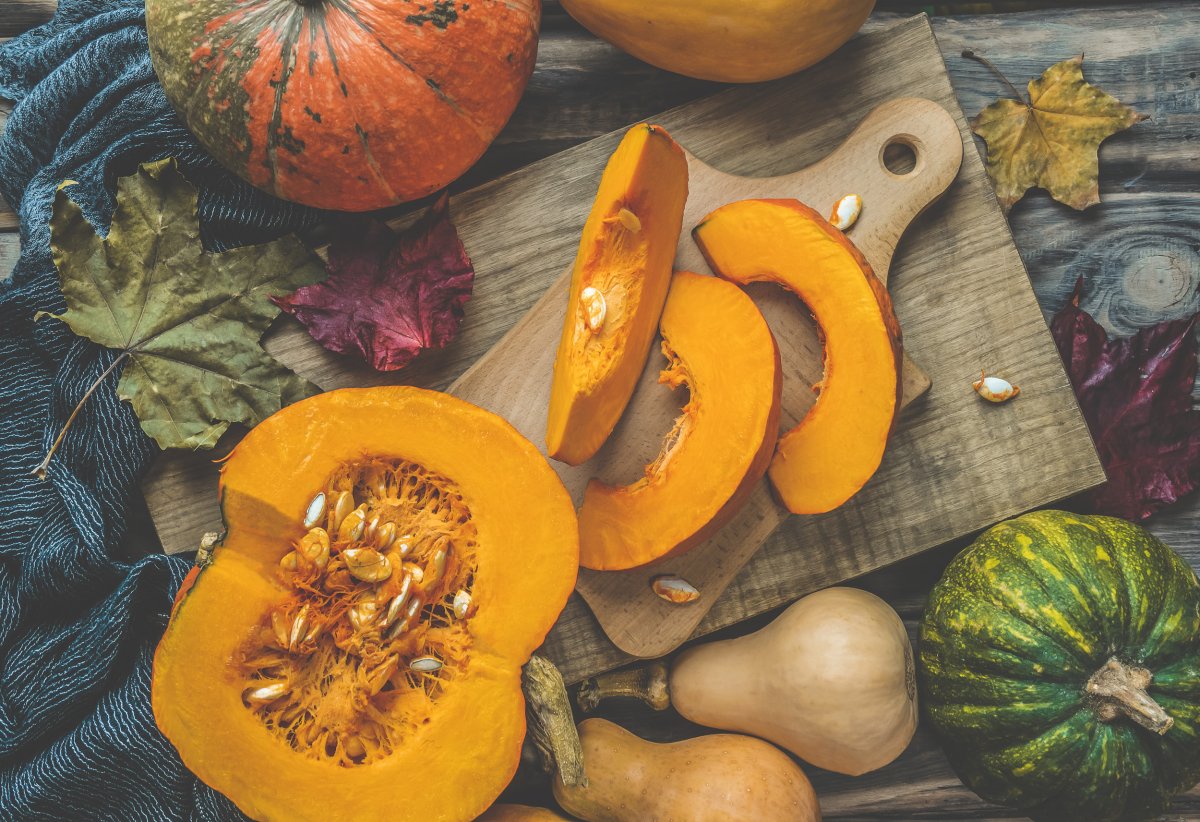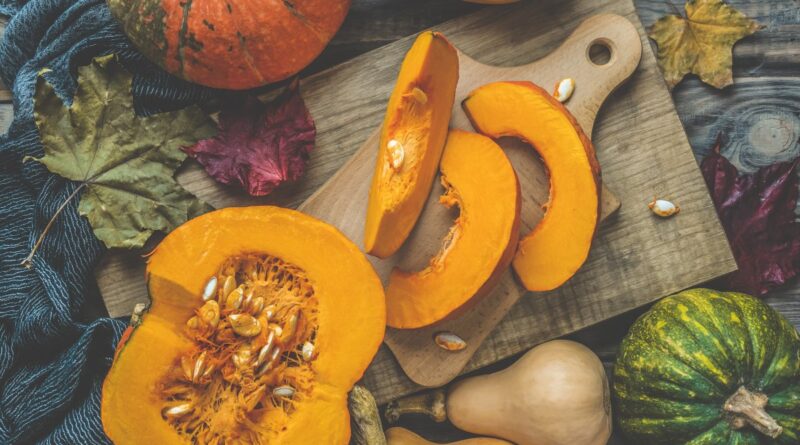Traditional Thanksgiving vegetarians call it a very tasty meal
Pumpkins, which we normally associate with spiced lattes and Thanksgiving pies, or simply carved into Halloween lanterns as we ditch the tasteless flesh, are now considered by experts to be very good food.
While no one should be surprised to find out that vegetables are good for them, maybe it’s time to look at how to eat pumpkins and give them more respect for what they can do for your health. us.
“Pumpkin is a powerful source of nutrition, full of beta-carotene, which supports eye health, and vitamin C, which strengthens the immune system,” Rakhi Lad, nutritionist at Healthology Hub, told . Newsweek. “It’s also high in fiber for digestion and potassium for heart health and energy. Plus, it’s low in calories and full of antioxidants, which make to be a good addition to your diet.”
Antioxidants help reduce free radicals, produced by chemical reactions, which can cause internal damage and wear and tear and lead to inflammation in the body, which is a risk factor for diseases. many including heart problems, obesity and type 2 diabetes.

Photo/Getty Images
A 2022 review of the health benefits of pumpkin described the benefits that can be attributed to squash, saying that it is a “well-known multi-functional food” that contains many nutrients, including proteins, carbohydrates, fatty acids, antioxidants and more – especially if the seeds are also eaten.
It said that pumpkins may play an “important role” in the management or prevention of diabetes, cancer, liver problems, heart disease and depression – although much of this is based on observational or animal studies.
Research has shown that pumpkin seeds may improve reproductive health, have anti-ulcer properties, aid in wound healing, prevent infections, and support serotonin levels. in people with depression or anxiety due to high levels of tryptophan.
It described the seed as a “nutritional powerhouse” and “effective in the fight against disease,” including arthritis, inflammation and prostate cancer.
For pumpkin flesh, there was early evidence that it could help control blood sugar levels among people with diabetes.
Charlotte Watts, nutritionist at Charlotte Watts Nutrition, said Newsweek that, even though he doesn’t like pumpkin himself, he knows why other people do.
“It’s a good bulker, very high in soluble fiber,” he said. “The orange colors are carotenoids, which like other squashes are fat-soluble nutrients, so you see them in the fall colors. when green chlorophyll falls; you see the carotenoids left in the leaves. They are fat-soluble antioxidants. protect the fatty areas of the body.”
A study by the Centers for Disease Control and Prevention in 2014 placed pumpkin on the list of “powerful fruits and vegetables,” above Brussels sprouts, cauliflower, cabbage, carrots, tomatoes, strawberries, grapefruit and blackberries.
However, even though nutritionist Valerie Agyeman’s article recently called pumpkin a “good food,” Watts cautioned against the term.
“I wouldn’t say anything is really good food, really, because it’s a word that was created a long time ago by PR companies to have something to write about,” he said. “It’s about something that has a very high antioxidant level, which when you call, a lot of natural things do.”
Watts was referring to the ORAC index—Oxygen Radical Absorbance Capacity, which measures the antioxidant capacity of foods when they are outside the body—which describes pumpkin’s antioxidant capacity as “low.”
Lad suggested that she try roasted pumpkin, pumpkin soup, spiced porridge and roasted pumpkin seeds, instead of buying a pumpkin spiced latte from a coffee shop.
“Although they may taste festive, they are full of sugar and have no real nutritional value,” he said.
Do you have advice about the food story that Newsweek should cover? Do you have a nutritional problem? Let us know about science@newsweek.com. We can ask experts for advice, and your story can be featured Newsweek.
#Traditional #Thanksgiving #vegetarians #call #tasty #meal
